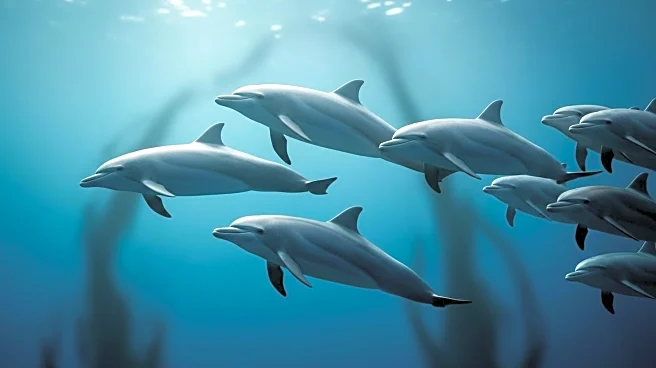What is the story about?
What's Happening?
Researchers from Florida's Hubbs-SeaWorld Research Institute have found that some dolphins stranded on beaches may suffer from Alzheimer's-like symptoms due to exposure to toxins produced by cyanobacteria. These toxins, including BMAA, are known to be highly toxic to neurons and can accumulate in the food chain, affecting top predators like dolphins. The study, published in Communications Biology, suggests that chronic exposure to these toxins may lead to cognitive decline and disorientation in dolphins, similar to dementia in humans.
Why It's Important?
The findings highlight the role of environmental toxins in affecting marine life and raise concerns about the potential impact on human health. Dolphins are considered environmental sentinels, and their health issues may indicate broader ecological problems. The study underscores the need for monitoring and managing cyanobacterial blooms, which are increasing due to climate change and pollution. Understanding these impacts is crucial for developing strategies to protect marine ecosystems and public health.
What's Next?
Further research is needed to explore the full extent of cyanobacterial toxin exposure on marine life and its implications for human health. Efforts to reduce nutrient pollution and manage water quality are essential to mitigate the risks associated with cyanobacterial blooms. The study also calls for increased awareness and action to address the environmental factors contributing to these health issues in marine and human populations.
Beyond the Headlines
The research points to the interconnectedness of environmental health and human health, emphasizing the importance of sustainable practices to protect ecosystems. The potential link between cyanobacterial toxins and neurological diseases in humans highlights the need for comprehensive environmental policies and public health strategies. The study also raises ethical considerations about the impact of human activities on marine environments and the responsibility to preserve biodiversity.















